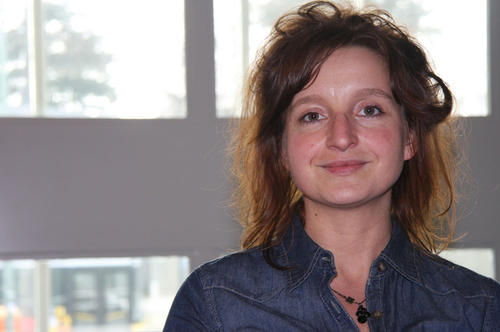Forgive me!
Scholars at Freie Universität study the phenomenon of forgiveness
May 03, 2012
What's behind the art of forgiveness? This issue is being investigated at the Languages of Emotion Cluster of Excellence.
Image Credit: Reinhard Sandbothe / pixelio.de
The sociologist Sonja Fücker is involved in the research group investigating forgiveness.
“To err is human; to forgive, divine,” we say, or “forgive and forget”: The phenomenon of forgiveness appears in many popular sayings, and various authors and filmmakers have tapped into it for their works. Now, scholars working on the “Forgiveness: Conceptual and empirical analyses” project within the Languages of Emotion Cluster of Excellence are studying the various aspects of this phenomenon. We talked with sociologist Sonja Fücker, one of the members of the project.
How did the “Forgiveness: Conceptual and empirical analyses” study come about?
This is an interdisciplinary project on which sociologists and psychologists are working together. In psychological behavior research, the act of forgiveness has been a topic of research for about 20 years now. Researchers in this field perform mainly questionnaire-based studies, while experimental studies are relatively rare.
In the social sciences, on the other hand, there has been hardly any fundamental research on forgiveness as a phenomenon, either empirically or theoretically. That was the hook, if you will, that prompted Christian von Scheve, junior professor of sociology at the Languages of Emotion cluster, and Angela Merkl [no relation to the German Chancellor], a research associate at Charité who holds a doctorate in psychology, to initiate the project.
What do you aim to find out in the study?
It would be desirable if we could establish a kind of typology of the principles that inform people’s decisions on whether or not to forgive someone and what the various cultural factors are that play a role in those decisions – religious and legal concepts, for example, or different ethical perceptions or social norms.
What interests you personally about the phenomenon of forgiveness?
In my work so far as a sociologist, I have focused extensively on reciprocity processes, meaning the principle of “give and take.” The word “forgiveness” also includes the term “give,” a kind of “gift.” That piqued my interest: Is forgiveness a one-sided action, or does the decision to forgive someone also carry with it expectations regarding subsequent behavior, and does it then also presuppose that people interact?
There is a lot of debate surrounding the idea of forgiveness. There are researchers who think the decision to forgive someone is an internal process, and that forgiveness doesn’t even need to be communicated to the “recipient.” Others argue that exactly that kind of communication is important, and that showing remorse or contrition and being asked for forgiveness are relevant to a successful process of forgiveness. Those are especially exciting issues from the sociological perspective, since we are always interested in the social aspects of behavior and actions, meaning the basics of how we get along together as people.
How is the study structured?
The study has three areas: an interview study, several psychological experiments, and a representative longitudinal study in which about 20,000 people were asked about their personal “forgiveness tendencies”: whether they tend to hold a grudge when they are hurt or whether they get over it quickly and are able to forgive.
Has the survey already yielded findings?
Our initial analyses show that both sex and age affect our personal tendency to be able to deal leniently with missteps by others – or not. Men and older people forgive more easily than women and young people. Many people forgive for rational reasons, rather than emotional ones. Consequently, forgiveness is linked to the precondition of being able to understand the actions and behavior of others.
How do you interview your subjects?
We ask them about their personal experiences, for example what especially dramatic experience they associate with forgiveness or lack thereof. On the social level, we want to know what fundamental meanings are associated with forgiveness, to what extent people view it as a criterion for people to be able to coexist, whether forgiveness is viewed as a behavior to strive for, and how we distinguish between forgiveness and the meaning of revenge – the opposite of forgiveness.
Where might the results of your study be applied concretely?
It would be desirable if the results of our study could be used in the area of social integration. If there should be different concepts of forgiveness, we could examine what meanings that might have for social cohesion in a society like Germany – in that forgiveness serves as an indicator of how people get along with each other.
Further Information
Dipl.-Soz. Sonja Fücker, Freie Universität Berlin, Languages of Emotion Cluster of Excellence, Tel.: + 49 (0)30 838 57199, Email: sonja.fuecker@fu-berlin.de

